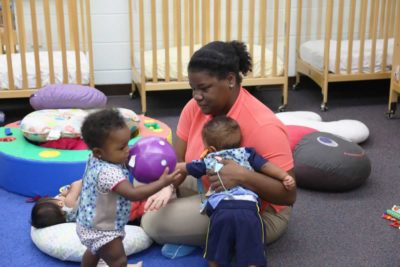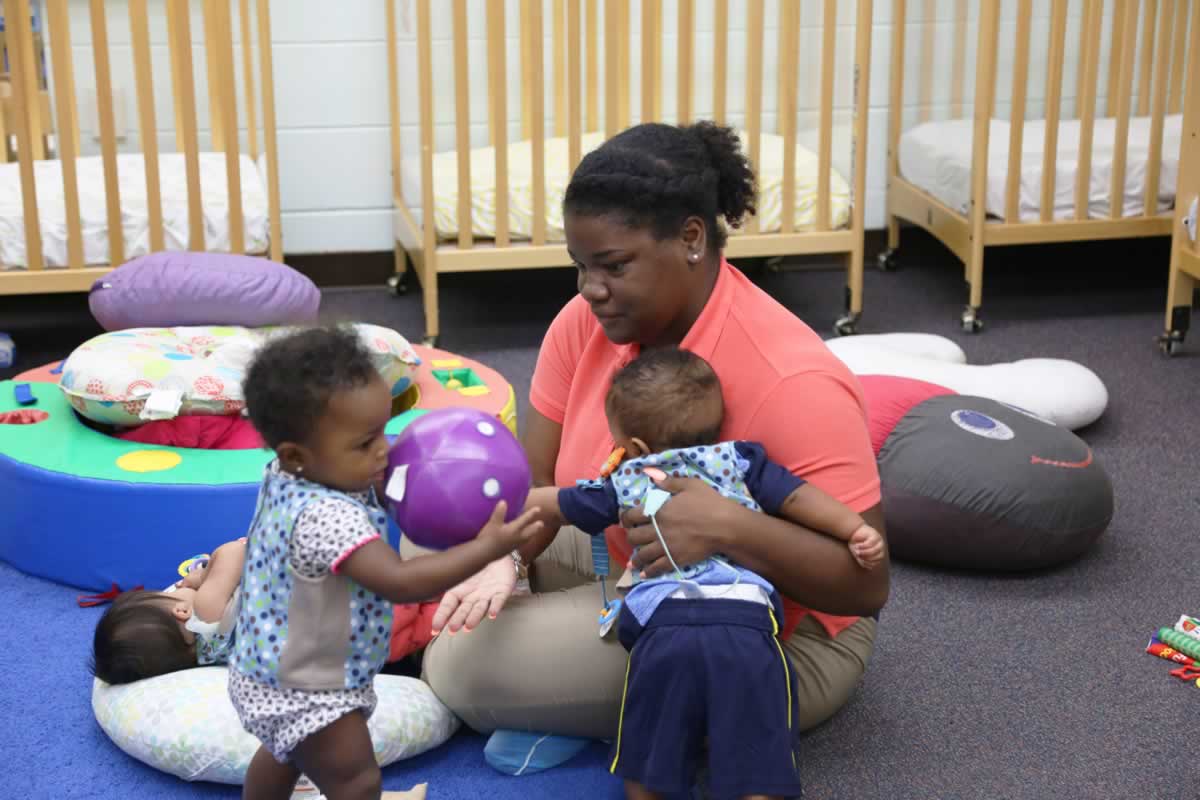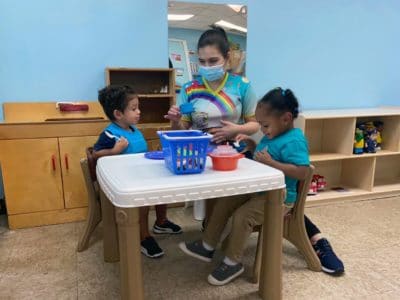 In May we surveyed child care providers to better understand how COVID-19 is affecting them and the children and families they serve. They shared concerns ranging from fear that face coverings were impeding interactions and relationships to challenges accessing supplies. Ultimately, these sources of stress associated with the pandemic continue to be wide-ranging and to impact all the adults in children’s lives, as well as children themselves.
In May we surveyed child care providers to better understand how COVID-19 is affecting them and the children and families they serve. They shared concerns ranging from fear that face coverings were impeding interactions and relationships to challenges accessing supplies. Ultimately, these sources of stress associated with the pandemic continue to be wide-ranging and to impact all the adults in children’s lives, as well as children themselves.
As child care programs are navigating through back to school and many likely disruptions this fall, a focus on maintaining positive interactions can help reduce stress for everyone and build responsive relationships, a key component in boosting resilience. LENA’s 14 Talking Tips help adults and children build stronger connections and provide concrete strategies for providers that address concerns related to children’s language and social development. Here we share some of the specific worries we’ve heard from providers along with positive actions they can take to help mitigate them:
More than half of providers believe COVID-related practices are significantly impacting child-child interaction and social development.
Encourage
-
- children to talk to each other, and
be positive
-
- through the tone of voice and words that you use. A warm tone of voice and positive environment will help children relax and interact more normally with one another, in spite of unusual restrictions.
-
- Find time for children to
be silly
-
- together while maintaining social distancing. Encourage them to
make faces and use gestures
-
- with their friends.
Comment on
- what they are doing with each other.
[quote]
32% of providers mentioned being concerned about children picking up on adults’ anxiety.
Tune in and respond
-
- to both children and other adults. Adults need caring relationships to build resilience, too!
-
- Encourage children and adults to
talk about
-
- emotions and have back-and-forth conversations about them. Recognizing facial expressions and emotions can be hard when everyone is wearing masks. With toddlers, try playing
Simon Says
-
- or a guessing game: make a face associated with an emotion (e.g., pretend to be sad) and see if the children can guess the emotion being modeled. Narrate emotional cues that can be identified even with masks. For example, your eyes might look sad or you may be looking down. Then, have the children try it and see if you can guess what they are feeling.
-
- Young children are often
incredibly resilient and adaptable
-
- . If you are feeling stressed,
follow their lead
- and let their imagination lead the way!
20% of providers mentioned they are worried masks will make it harder for children to learn emotional cues and develop language. 
-
- If you’re unsure whether children can hear you clearly, the important thing to pay attention to is whether they are responding to you and that in turn, you are responding to them. Whether they are engaged with you and making eye contact is a good indicator of whether they understand what you’re communicating to them.
-
- One of our partners in Colorado had their teachers start wearing face coverings in the middle of a LENA Grow sequence. They saw a dip in their conversational turns data, but with some reflection and intentional efforts, their data returned to typical levels of interaction. Based on their experiences, they recommend:
- Take turns and make sure to talk with children not at them.
- Use gestures and sign language alongside speech to illustrate what you are saying.
- Make sure you get down on the child’s level when speaking with them.
- Minimize background noise like loud music.
Many providers shared they are worried about not being able to provide emotional support through physical touch.
- In cases where teachers cannot provide physical support and comfort to children, talk is even more important, though we know it’s not the same. Where you might normally give a hug, use words and movement to express support and comfort.
Above all, remember that everyone is feeling stressed and distracted by extra worries. Take time to be kind to yourself and find the mental space to have extra flexibility and grace with the children in your care. Supporting families and reminding them of ways to keep interactions high at home by sharing these ideas along with the 14 Talking Tips can also help reduce stress and keep everyone on the same page.




